Translated by Yehoshua Siskin
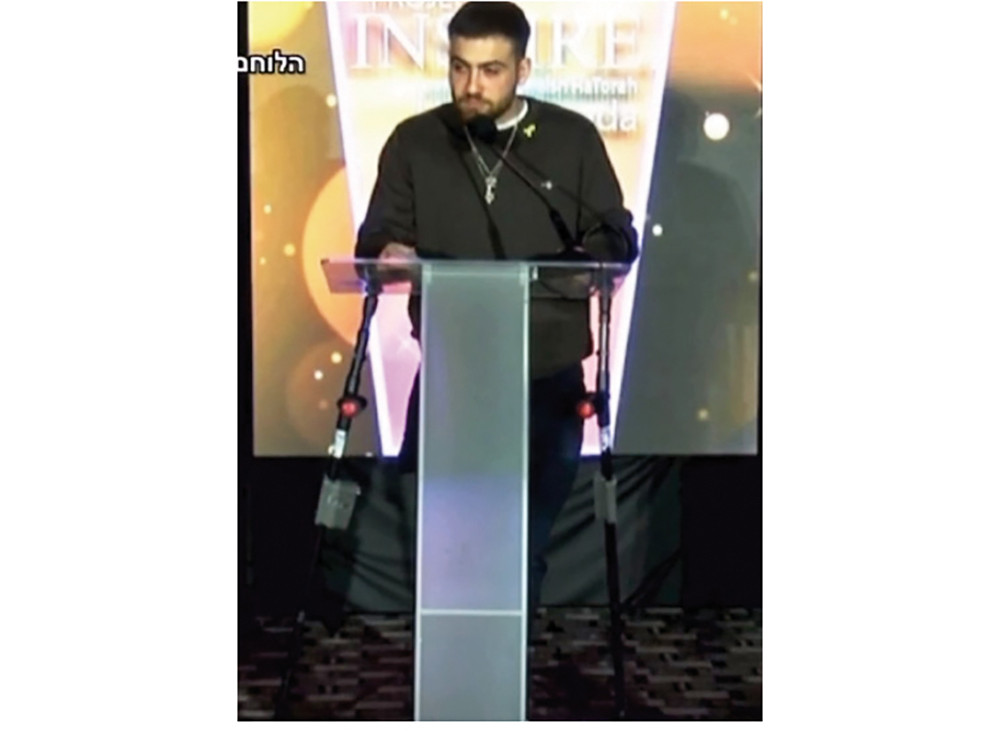
A Lesson Learned From US Students
I’d like to share a few insights following a lecture that I delivered to a contingent of university students that came to Israel last week from the US. One student, from NYU, remarked, “Ever since October 7th, I felt like I was gasping for air. The last several months on campus have been one huge antisemitic nightmare. But now I feel that I can breathe again!
“We came here to help and to contribute; each of us donated a lot of money that we collected to grieving families and to evacuees in hotels. On the other hand, we gained from our visit a lot more than we expected. We received an identity, a sense of belonging and meaning. I will never forget Shabbat in Jerusalem. I will never forget our visit to the rehabilitation department in Tel Hashomer hospital or meeting the farmers in the south. There is no spirit like this anywhere else in the world. I return to campus tomorrow completely transformed.”
A young woman then related how one of her university lecturers took her aside and whispered, “I envy you traveling to Israel, you are on the right side of history.” Despite his admission, he wasn’t willing to say it aloud in front of the class.
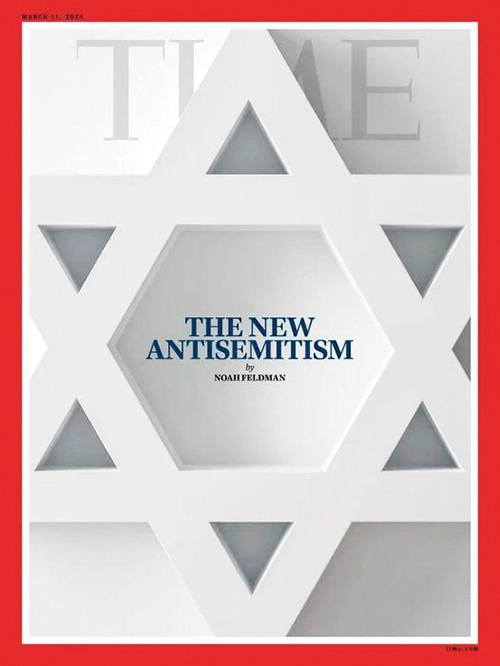
“The world is completely confused,” she continued. “Students in my class who consider themselves liberal and progressive support Hamas without shame. During our week here we gained moral clarity: the ability to understand that there is good and there is evil, and that we can choose to stand by the side of those who are good. I truly feel the fulfillment of the famous verse from the Book of Yeshayahu: ‘From Zion the Torah will go forth, and the word of God from Jerusalem’.”
After meeting these students, I realized: They didn’t only come here to support us, but for us to support them.
Fighting Antisemitism
Is Not Our Only Mission
In his cover story in Time Magazine, called “The New Antisemitism,” Noah Feldman, a professor at Harvard Law School, underlines the crucial difference between Israel and Hamas. “During the Hamas attack, terrorists intentionally murdered children and raped women. Its charter calls for the destruction of the Jewish state. Yet the accusation of genocide is being made against Israel.”
Shining the spotlight on antisemitic lies about Israel is important, but according to Rabbi Dr. Ari Berman, president of Yeshiva University, when speaking at the Jerusalem Post Conference in London, this is not our core mission. “To protect is essential, but our mission is to project. … Too often our collective global efforts are focused exclusively on protection, calling out antisemitism. But to paraphrase Harav Avraham Yitzchak Hakohen Kook, ‘The best way to fight against darkness is by spreading more light.’ Part of our response to antisemitism is to produce more light, to respond to evil, by increasing our collective holiness.”
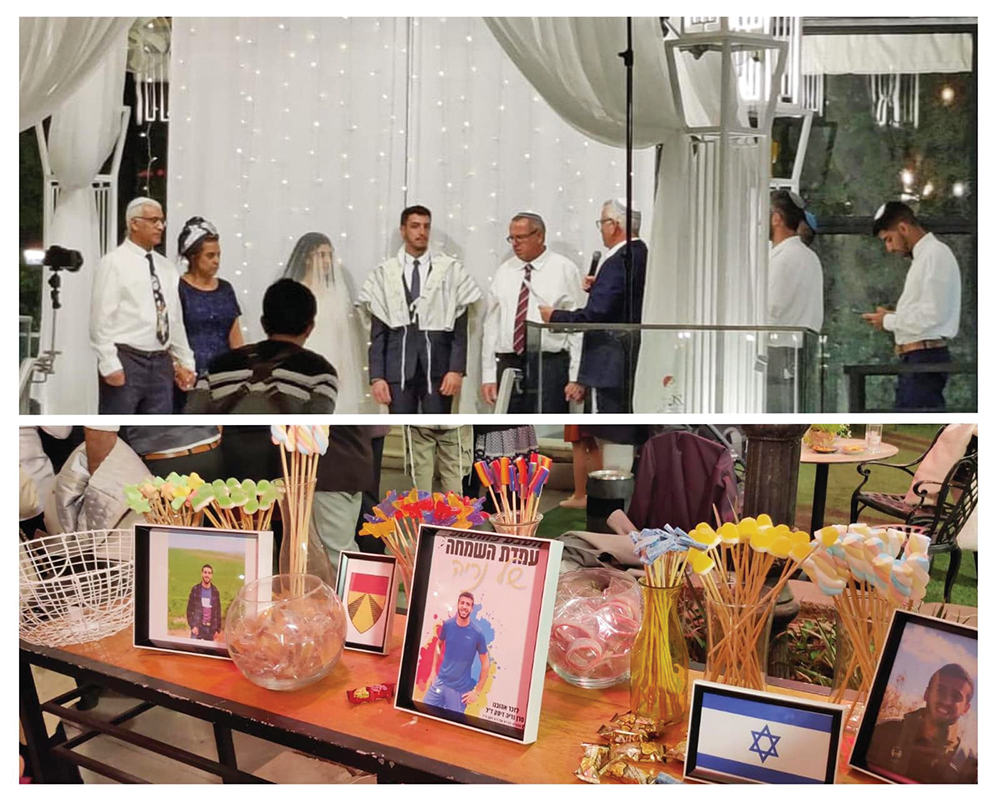
A Soldier’s Sweet Memorial
I received a letter from Yisrael Zisk, the father of IDF soldier Neriya, who fell in battle two months ago. Together with the letter, he sent photos that captured two poignant moments. The first shows the chuppah of Zisk’s son, Dvir (Neriya’s brother), with his bride, Nofech. In the second photo, you see a heartfelt tribute to Neriya: a table laden with candies and treats alongside pictures of Neriya, and which they called “Neriya’s Happiness Corner.” Yisrael Zisk wrote: “It made us feel that he was right there with us throughout the night. Am Yisrael Chai!”
Living Proof of the Resilient Jewish Spirit
Greetings from New York.
“How do we emerge from darkness into light?” A tough question at any time, but especially pertinent nowadays. It was the opening line given by Rabbi Chaim Sampson, the host of the annual Project Inspire Shabbat event, attended by more than a 1,000 people from all across the globe.
“We hear about so much sadness and grieving,” Rabbi Sampson continued. “I want to tell you about a 5-year-old child who lost his parents in the Holocaust. He was forced to leave his home and everything that was familiar to him and, together with his older brother, he survived a slave labor camp, a concentration camp, a death march, hunger, cold,and daily horrors. He was eight when the war ended – unable to read or write; instead of going to school he’d been occupied with moving dead bodies at Buchenwald. At the first opportunity, he took a boat to the Land of Israel, but as soon as he arrived, he was sent to a detention camp in Atlit.
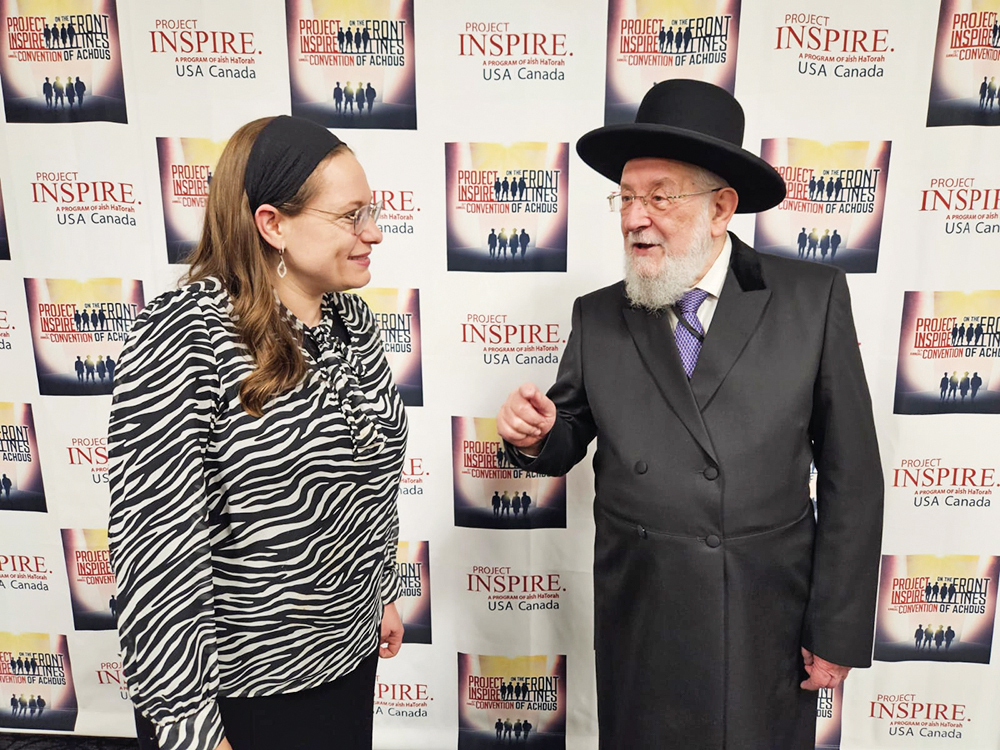
“What kind of future would you envision for this child? Orphaned, abandoned, poor, uneducated, plagued by fear and trauma. I want to invite him to the stage. Today he’s 87 years old, and his name is Rabbi Yisrael Meir Lau. He built himself up, studied and advanced, and then married and raised a wonderful family. He became the Chief Rabbi of Israel. He serves as chairman of the Yad Vashem Council and is one of the most famous, eloquent spokesmen on behalf of Israel and of the Jewish people throughout the world.
“The children of Be’eri, Sderot, Kfar Aza… they can all gain strength from his story. It’s not only the story of Yisrael, the orphaned child; it’s the story of Am Yisrael. We have living proof in our generation of the ability to emerge from disaster to rebirth. It is a tremendous privilege to hear Rabbi Lau tell his story, our story, particularly at this time.”
A Message From A Soldier Who Lost His Leg
IDF soldier Shalom Shetreet walked onto the Project Inspire stage on crutches, his presence commanding the attention of the 1000-strong crowd as he delivered a message that reverberated powerfully.
“As you can see, I lost a leg,” he began. “It happened on Oct. 7, and since then I’ve undergone several operations and rehabilitation. My experience has taken me on a journey, one that has led me into unfamiliar territory within the Jewish world. Suddenly, my hospital room at Tel Hashomer was filled with so many people — not just from Israel, but also support delegations from the US. In that room, a profound truth revealed itself to me, as Jews of all kinds came together, and it touched me to the core. That’s why, despite the challenge due to my condition, I boarded a 12-hour flight to New York, in order to say thank-you, and to ask you to continue.
“During this Shabbat together, I learned of your efforts to empower and connect with young Jews across the US. This spirit of unity is the most meaningful gift you could offer me. Let’s not look at one another as strangers; let’s resolve our differences with wisdom and love. History has sounded an urgent alarm; we mustn’t ignore this opportunity.
“The war isn’t over yet. I am fighting together with you on behalf of millions of our brothers and sisters here in the US, who are at risk of disappearing. Bring them into our story.
“In every generation, we have argued among ourselves, and in every generation, we are reminded to draw closer. Today, I sense a renewed familial bond, a renewed love. And for that, losing my right leg was a sacrifice worth making.”
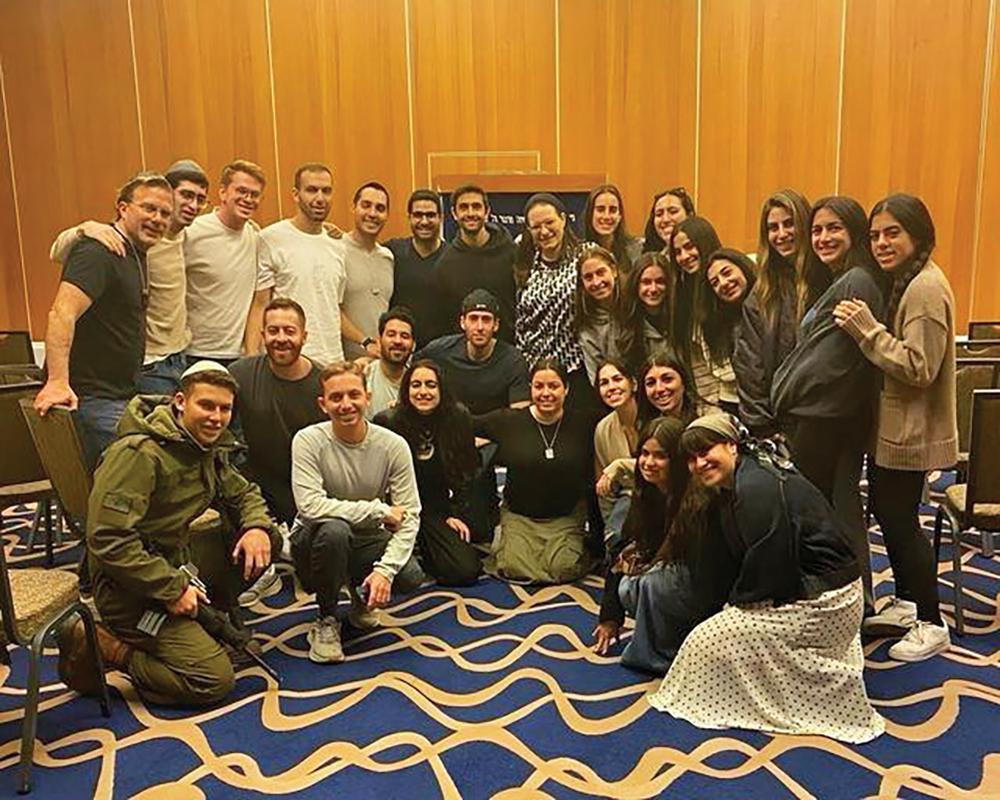
As Shalom stood tall on one leg, the audience rose as one, their applause echoing their solidarity and admiration for his resilience.
Sivan Rahav Meir is a primetime news anchor on Israeli television with a regular column in Yediot Aharonot, Israel’s largest newspaper, and a weekly radio show on Galei Tzahal (Army Radio). She has a tremendous following on social media for her insights into Jewish life and tradition. Her lectures on the weekly Torah portion are attended by hundreds, and the live broadcast attracts hundreds of thousands more viewers across the globe. She was recognized by Globes newspaper as the country’s most popular female media figure and by the Jerusalem Post as one of the 50 most influential Jews worldwide. She lives in Jerusalem with her husband Yedidya and their five children.












